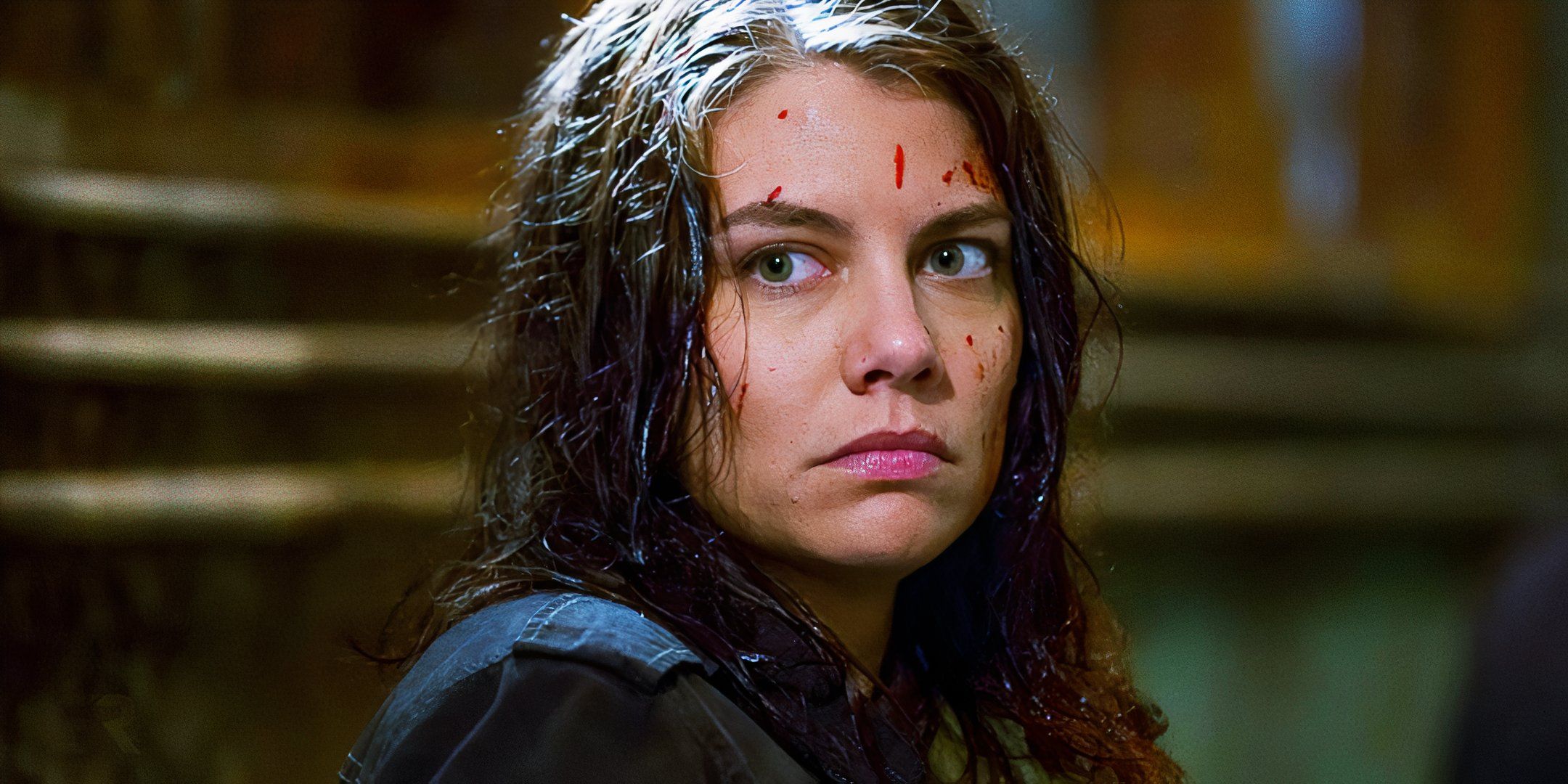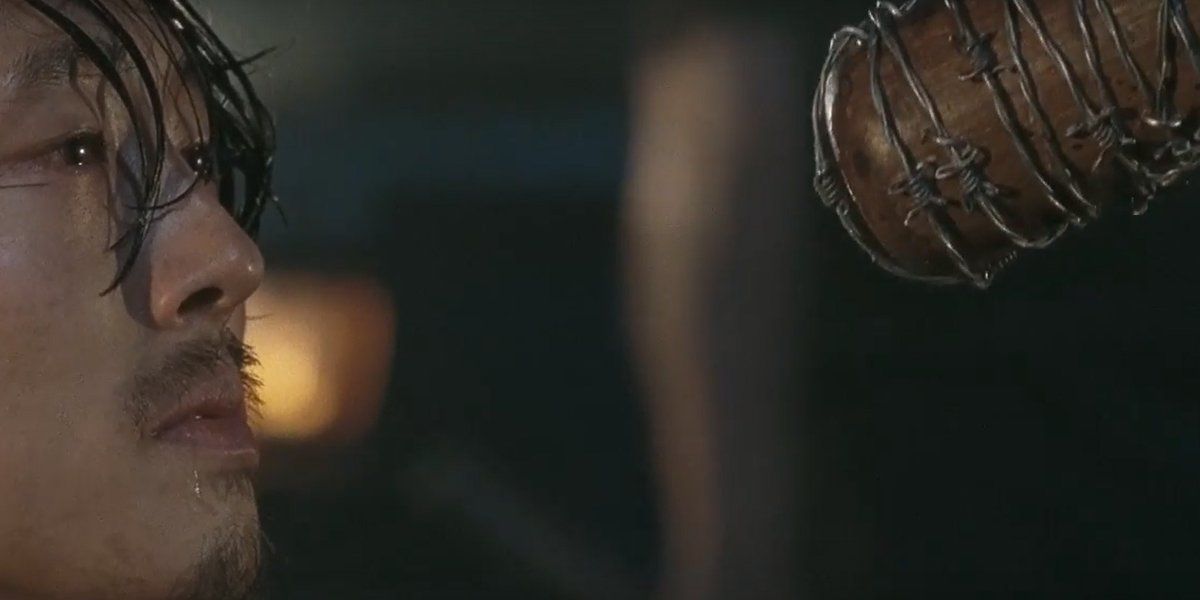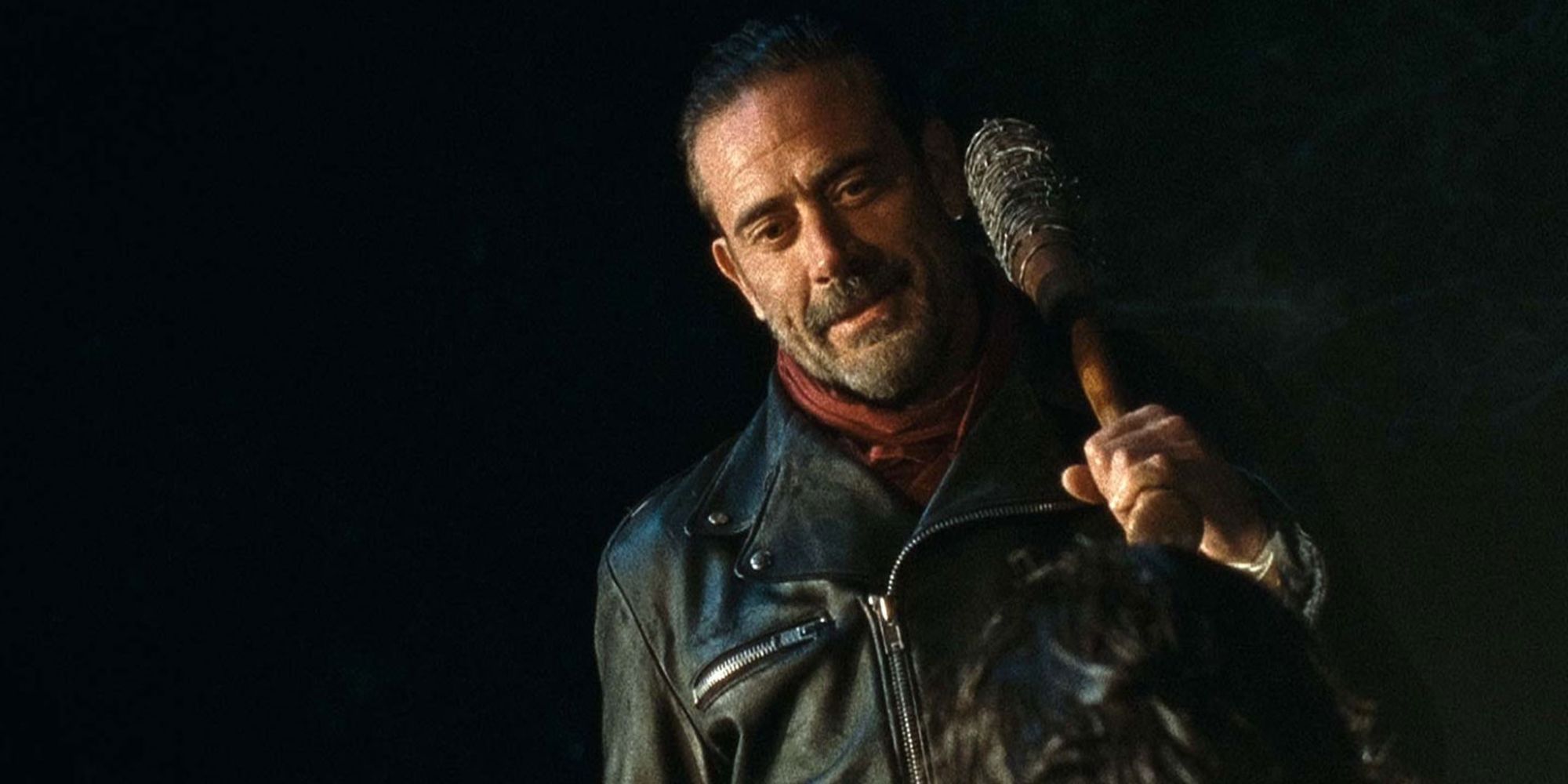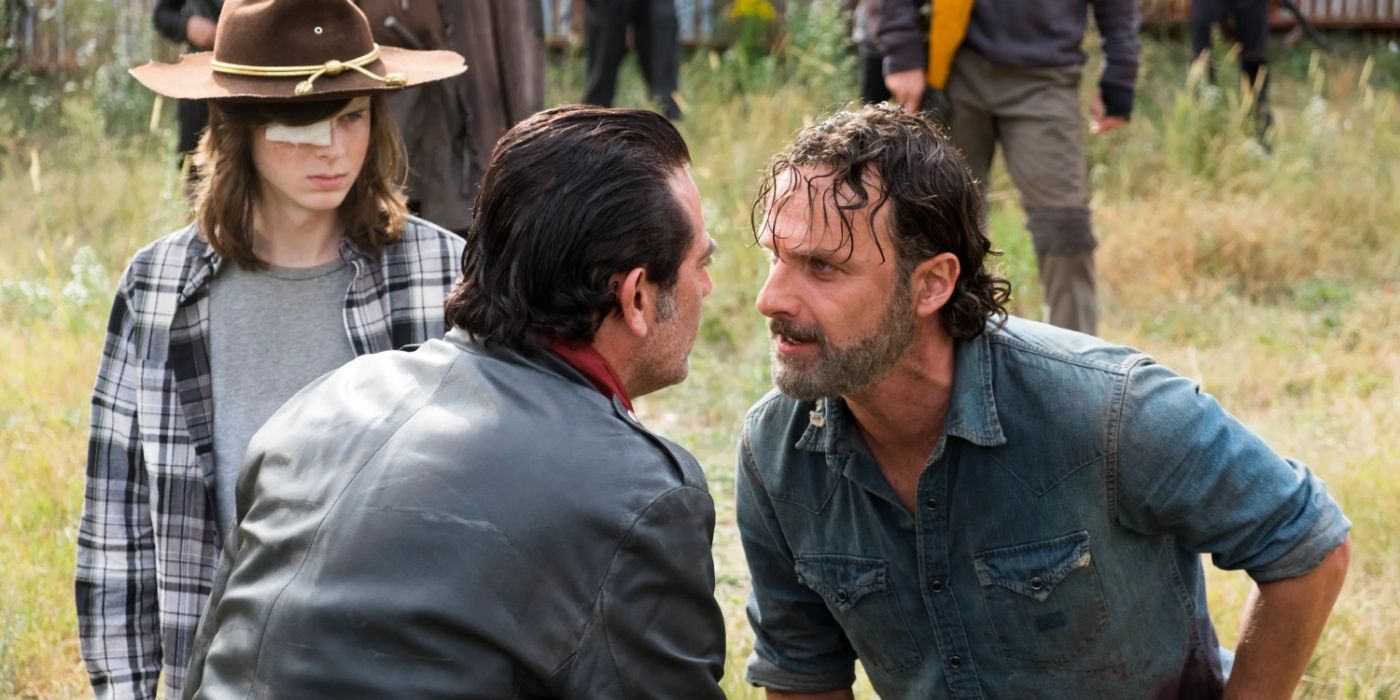
Among The Walking Dead’s best characters, one stood apart as a consistently selfless human being who was universally liked by the show’s fanbase. Subjecting this character to the show’s cruelest fate appalled viewers, and his death even took its toll on The Walking Dead’s creator. The death in question is, of course, the demise of Glenn Rhee, one of the show’s first and greatest heroes. The manner of Glenn’s killing, as well as his absence from the remainder of the series, meant that never again could TWD reach the heights of its earlier seasons.
Glenn's Death Has Become The Walking Dead's Most Infamous Scene
The Brutality Of The Death Scene & The Popularity Of The Character Made It Hard To Swallow

The murder of Glenn Rhee, bludgeoned to death slowly and mercilessly by The Walking Dead’s most powerful villain, Negan Smith, left most viewers reeling for years to come. The profound hatred engendered in Walking Dead fans by Negan’s actions is unsurprising, given just how lovable Glenn was as a character.
A father-to-be who’d found his true love amidst the zombie apocalypse in fellow survivor Maggie Greene, Glenn was one of the few living in The Walking Dead with reasons to be genuinely hopeful. What’s more, throughout his stint in the show, he was a selfless and loyal hero who was the last character deserving of a violent and excruciating death at the hands of another living human.
When Negan took a baseball bat to Glenn’s head, cracking his skull and perforating his eyeball, it was a shocking act of barbarity beyond even the dystopian world of The Walking Dead we’d come to know. It was devastating, too, to see someone we’d come to know, love, and root for through the years of watching the show remorselessly dismissed from its cast of characters in such a sadistic way. Years after the original The Walking Dead TV series ended, Glenn’s death lives on in infamy as the show’s single-most harrowing moment.
Why It Made Sense For The Walking Dead To Kill Off Glenn In Season 7
It Followed Canon & Demonstrated Negan’s Credentials As A Villain

On the other hand, Glenn Rhee was always supposed to die in season 7 of the TV series. Glenn’s story in The Walking Dead’s comic books dictated that he had to go this way. It would have been a major departure from the franchise canon if he didn’t, instead living to see the birth of his child with Maggie. In fact, The Walking Dead’s creator Robert Kirkman had originally intended for Glenn to die way earlier than he eventually did, because Kirkman was just too attached to the character.
The Walking Dead's most likable character was sacrificed for Negan's terrible statement of intent, demonstrating just how far he was willing to go
Glenn’s death also signaled the arrival of Negan as the show’s central villain. The Walking Dead had to make a statement about the kind of evil Negan was capable of committing. So, Kirkman deliberately chose the story’s most likable character to sacrifice for this terrible statement of intent, demonstrating just how far his new antagonist was willing to go. As Negan himself put it, seconds before he split Glenn’s skull in half, “I need you to know me.” Moments later, we’d never forget him.
Despite His Fate In The Comics, Glenn's Death Ruined The Walking Dead
The Show Was Never The Same Without Him

While it’s true that most viewers were already used to Robert Kirkman’s knack for killing off his favorite characters before Glenn met his fate, this main character's death was simply one too many to swallow. Audiences began switching off during the course of seasons 7 and 8, and those who stayed till the end complained that The Walking Dead missed Glenn’s boyish charm, human decency, and infectious optimism. Without him, the show lacked levity and variety, and was too mired in misery for a lot of fans to bear.
The Walking Dead's Later Seasons Had Other Problems Beyond Glenn's Absence
Glenn’s Death Was The Catalyst But Not The Cause

Although The Walking Dead did rediscover some of its mojo in its final three seasons, the series was never really the same after Glenn died. But its decline wasn’t solely down to Glenn’s exit, as his death was merely symptomatic of longer-term problems resulting from the show’s attempts to continue past its prime.
The loss of Steven Yeun’s character was just one of many things that went wrong with The Walking Dead throughout the second half of its 11-season run. The series developed a holding pattern of repeating the same kinds of storylines, death scenes, and climactic action sequences across each season. As it began to run out of creative steam, its plotlines also lost momentum, and many episodes felt as though they were just there to buy time.
Glenn’s death precipitated several more badly executed character killings in the show’s later seasons, too. Most notably, the death of Rick Grimes’ son Carl in season 8 felt like the moment when The Walking Dead really jumped the shark. Regardless of the comic-book canon, it might have been better if the TV show had gone out on top, rather than continuing on a downward trajectory for several years past its best. The end of Glenn Rhee was ultimately the beginning of the end for The Walking Dead itself.

-1750927587-q80.webp)
:max_bytes(150000):strip_icc():focal(749x0:751x2)/joe-giudice-Gia-Giudice-tout-042225-9600b904ccab4890876a453b9a9a1dc4.jpg)
-1749700939-q80.webp)